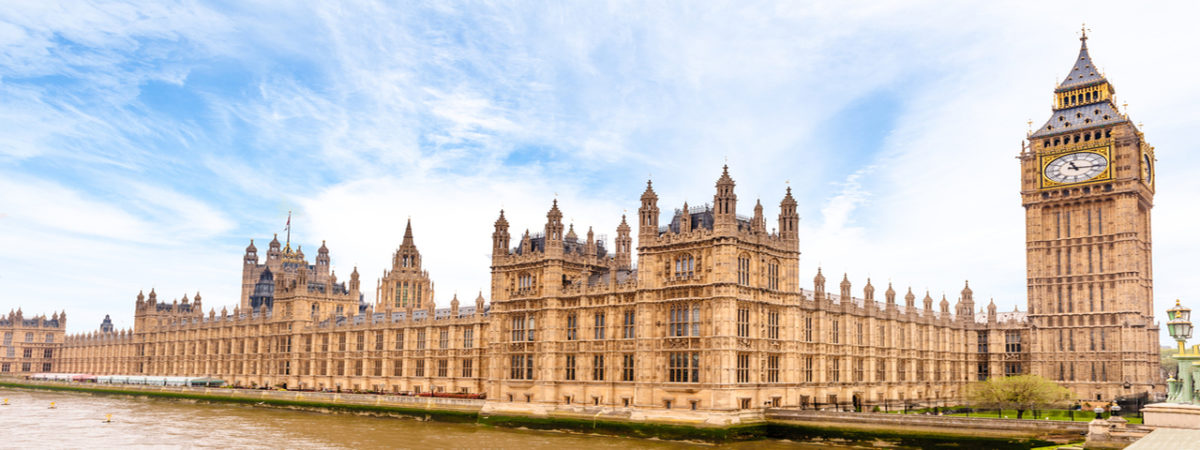The Health and Care Bill: nanny statism on steroids
SUGGESTED



Few Conservative MPs will want to vote against this. Unfortunately, the government has exploited their reluctance to rebel by inserting a number of policies that are far more controversial and far from conservative. If passed, the Bill will impose some of the most draconian restrictions on the sale and marketing of food anywhere in the world.
After being hospitalised with COVID-19 last year, Boris Johnson convinced himself that the government should do something about obesity. This was the moment Public Health England and the Department of Health had been waiting for. They had been pushing a raft of nanny state policies at prime ministers for years, but they had always been rejected for being unworkable and illiberal. These included a ban on so-called ‘junk food’ advertising, heavy restrictions on where shopkeepers could position their products, mandatory calorie labelling in restaurants and a ban on price promotions.
This grab bag of paternalistic policies had crossed the desk of David Cameron and Theresa May, but aside from a tax on sugary drinks, had gone nowhere. Once Boris Johnson became prime minister in 2019, they seemed doomed. Few Conservative politicians had expressed more contempt for the nanny state than Johnson had over the years and by early 2020 they seemed to have been kicked into the long grass.
But once he had recovered from the coronavirus, the Department of Health dusted down their wish-list and handed it to an exhausted Johnson who gave them his approval. The civil service was left to turn it into a set of workable policies.
It was not an easy job. The proposals had been developed by public health activists who know little about business and care even less. Mandatory calorie labelling sounds like a good idea in theory, but it would be impossible for independent pubs, cafés and restaurants to comply in practice. They do not have the resources to undertake a scientific analysis of every dish of the day.
The idea of banning ‘junk food’ at the entrance and checkout of shops was designed to stop supermarkets selling chocolate bars at the till and a ban on positioning ‘junk food’ at the end of aisles was added for good measure. This all amounted to a major inconvenience for supermarkets, but it would be totally impossible for small retailers. Everywhere is near an exit, entrance or aisle in a corner shop.
Perhaps the biggest problem was the definition of ‘junk food’. There wasn’t one. ‘Junk food’ is a pejorative term used by campaigners, not a legal category. The nearest approximation is High in Fat, Sugar or Salt (HFSS) but this encompasses a vast range of everyday food products from butter and jam to cheese and mustard. As originally drafted, the advertising ban would stop the local bakery from ever advertising online again, even on their own website.
The government has since exempted businesses with fewer than 250 employees from mandatory calorie labelling and the display ban, but the legislation remains a dog’s breakfast. A ban on advertising ‘less healthy food’ on TV before 9pm and online at any time remains, but what is ‘less healthy food’? According to the legislation, it is any food that ‘falls within a description specified in regulations made by the Secretary of State’. In other words, it is whatever Sajid Javid and his successors say it is. MPs have no way of knowing what they are voting for. It is a pig in a poke.
What is certain is that they will be voting for state interference in the food supply that is unprecedented in peace time. Thousands of businesses will be prevented from promoting their products online and broadcasters will lose hundreds of millions of pounds of revenue. The food industry will become less competitive and less innovative. The government’s own estimates suggest that the ban on price promotions, such as buy-one-get-one-free, could cost the average shopper £634 a year and that the whole raft of measures will only reduce people’s energy intake by 17 calories a day – and even that is based on some highly optimistic assumptions.
None of this has ever been properly debated or scrutinised. The government is ramming a set of well-intentioned but ill-considered policies through parliament under the cover of Covid and on the pretext of fixing social care. MPs should refuse to be strong-armed into supporting the government on a course of action they know to be wrong.
This article was first published in the Express.
2 thoughts on “The Health and Care Bill: nanny statism on steroids”
Comments are closed.




My body my choice. I choose what I eat and when it’s not the job of the government to dictate to me. Tell your globalists paymasters to fuck off
This is not true. In fact, it says that “the food and drink product is “less healthy” if—it falls within a description specified in regulations made by the Secretary of State, which must also be defined by the Nutrient Profiling Model, which is laid out within the legislation. It can be found here: https://www.gov.uk/government/publications/the-nutrient-profiling-model.